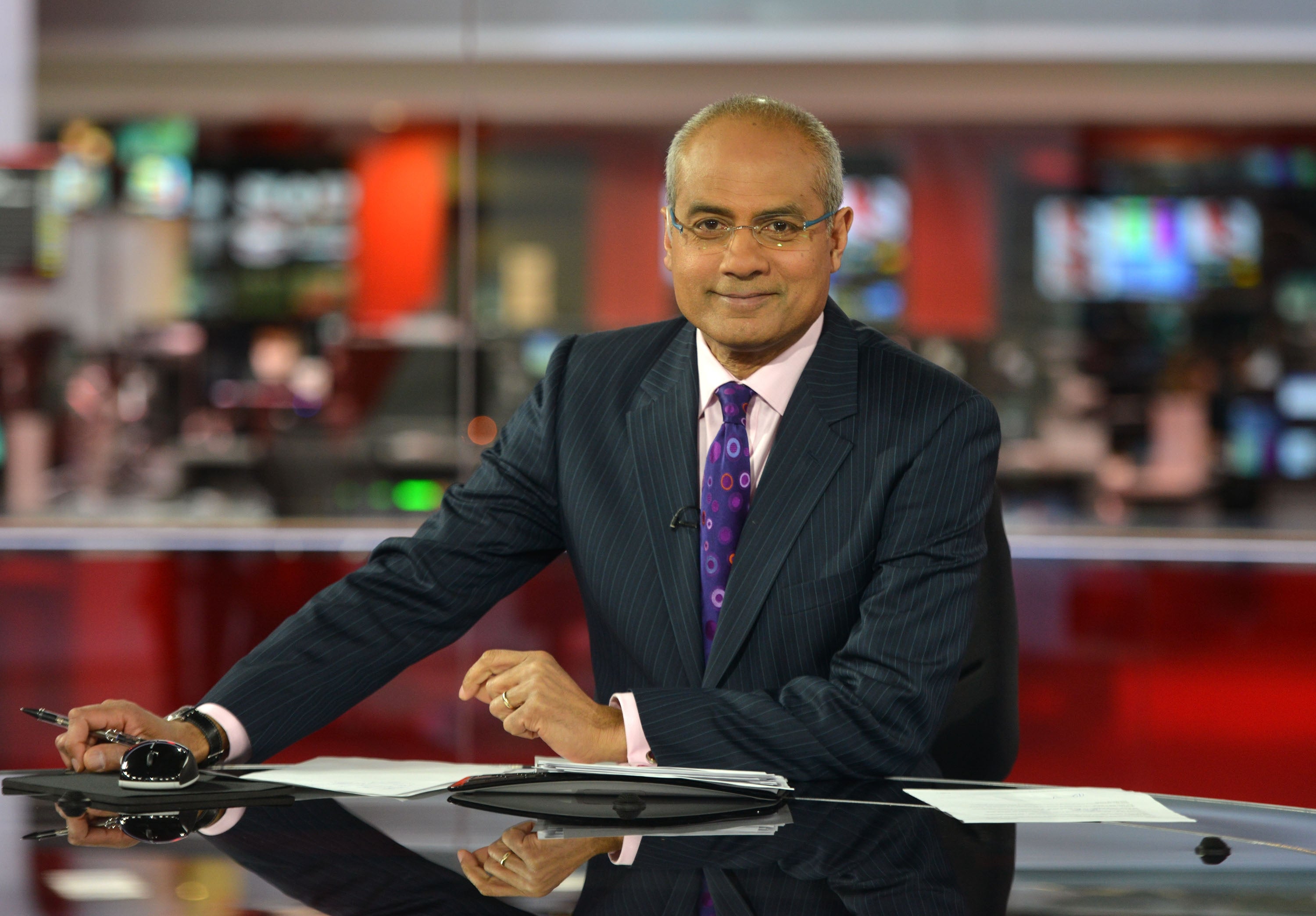BBC News role makes me feel ‘mentally rejuvenated’, George Alagiah says
The 66-year-old newsreader was diagnosed with bowel cancer in 2014.

Your support helps us to tell the story
From reproductive rights to climate change to Big Tech, The Independent is on the ground when the story is developing. Whether it's investigating the financials of Elon Musk's pro-Trump PAC or producing our latest documentary, 'The A Word', which shines a light on the American women fighting for reproductive rights, we know how important it is to parse out the facts from the messaging.
At such a critical moment in US history, we need reporters on the ground. Your donation allows us to keep sending journalists to speak to both sides of the story.
The Independent is trusted by Americans across the entire political spectrum. And unlike many other quality news outlets, we choose not to lock Americans out of our reporting and analysis with paywalls. We believe quality journalism should be available to everyone, paid for by those who can afford it.
Your support makes all the difference.George Alagiah has said continuing with his BBC News at Six presenting role, despite suffering from cancer, makes him feel “mentally rejuvenated,” but leaves him “absolutely knackered physically”.
The 66-year-old journalist and newsreader publicly shared his stage four bowel cancer diagnosis in 2014 and recently revealed he has a tumour site at the base of his back which causes him extreme pain.
Alagiah, who returned to his BBC News at Six presenting role in April after announcing he would be taking a break in October 2021, spoke candidly to The Sunday Telegraph about how he continues his presenting duties while living with cancer.
“Going into the newsroom doesn’t kill any cancer cells, that’s for sure,” he said.
“By the time I walk out of that newsroom at seven o’clock in the evening, having been there since the morning, I am absolutely knackered physically, but mentally I am rejuvenated.
“I’ve been with people who treat me as they always did, who don’t patronise me, and it is a tremendous fillip.”
Sri Lanka-born Alagiah also spoke movingly about his fear of leaving behind his wife of 38 years, Frances Robathan.
He said: “One of the things I want to do is hold hands with my wife until the end, and am I going to be able to do that? It haunts me. Not every day.
“I’m not too scared for myself, but I’m here on the third floor of our house, and I am looking out of the window at Frances setting out the tablecloth on our garden table, and it occurs to me, is she going to have to do that for herself one day, and eat on her own?”
The former BBC foreign correspondent, who was part of the BBC team that was awarded a Bafta in 2000 for its coverage of the Kosovo conflict, underwent 17 rounds of chemotherapy to treat his advanced bowel cancer in 2014.
He returned to presenting duties in 2015 after making progress against the disease and said he was a “richer person” for it.
His cancer returned in December 2017 and the presenter underwent further treatment before once again returning to work.
Last year he tested positive for coronavirus after deciding to stop appearing in the studio during the outbreak following advice from doctors and colleagues.